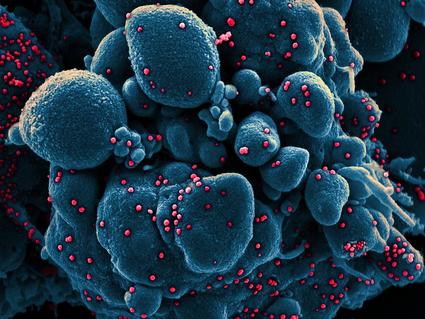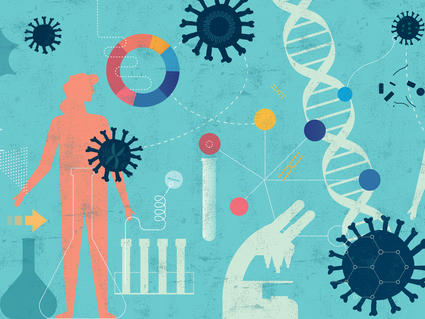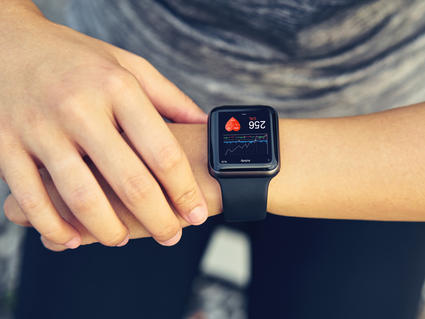NCI COVID-19 Research Initiatives
NCI is contributing to the global effort to address the COVID-19 pandemic by mobilizing its scientific experts and cutting-edge resources to conduct research on SARS-CoV-2, the virus that causes COVID-19. This research includes studies of responses to the virus and vaccines, factors that influence COVID-19 severity, how the virus affects cancer patients, and the impact of cancer and cancer treatment on the immune response to the virus and vaccinations.
NCI-Supported Clinical Trials for Coronavirus
NCI supports clinical trials to test promising treatments for patients with COVID-19 and to learn more about the disease’s effects on the body. Some of the trials are specifically for patients with cancer.
NCI COVID-19 Serology Program
NCI has launched many efforts to understand the immune response to COVID-19, funded by an emergency appropriation passed by Congress in April 2020 as part of the Paycheck Protection Program and Health Care Enhancement Act. The act provided NCI with additional funding beyond its cancer research base to develop, validate, improve, and implement serology testing and related technologies to respond to the pandemic. Serology tests measure a person’s immune response to an infection or vaccination in the form of antibodies in the blood.
The largest component of NCI’s serology initiatives is the Serological Sciences Network (SeroNet), which was established to support research on the immune response to SARS-CoV-2 infection and vaccination, as well as to increase the nation’s serological testing capacity. SeroNet supports research projects in basic and applied serological research related to COVID-19 at 13 universities, 8 Serological Sciences Centers of Excellence, 4 Serological Sciences Network Capacity Building Centers, the COVID-19 Serology Laboratory at the Frederick National Laboratory for Cancer Research (FNLCR), and a coordinating center at FNLCR. Scientific data resulting in publications from SeroNet research are made available through the National Institute of Allergy and Infectious Diseases (NIAID) ImmPort database.
Staff in the COVID-19 Serology Laboratory at FNLCR have also worked with the Food and Drug Administration (FDA), the Centers for Disease Control and Prevention (CDC), and the NIH Clinical Center to validate SARS-CoV-2 antibody tests submitted to FDA for emergency use authorization by outside scientists and companies. The goal of this interagency collaboration is to ensure that test kits made available to the public accurately and reliably detect antibodies produced in response to infection with SARS-CoV-2. As of November 2022, more than 120 commercial assays have been evaluated.
The COVID-19 Serology Lab staff have also developed assay standards and assay validation panels to be used by laboratories conducting SARS-CoV-2 serology testing. One such standard, the Human SARS-CoV-2 Serology Standard (a pool of plasma from four donors with antibodies to the SARS-CoV-2 spike and nucleocapsid proteins) is available by request to labs conducting COVID-19 antibody testing to enhance cross-study comparisons.
In collaboration with the National Institute of Allergy and Infectious Diseases (NIAID) and CDC, NCI has developed the COVID-19 Seroprevalence Studies Hub, or COVID-19 SeroHub. This online dashboard catalogs planned, ongoing, and completed studies assessing the proportion of people in the United States who have SARS-CoV-2 antibodies in their blood. COVID-19 SeroHub includes data from studies conducted in all 50 states, the District of Columbia, and Puerto Rico. Researchers, policymakers, and state and local public health officials can use the COVID-19 SeroHub to facilitate evidence-based decision making, inform future studies, and identify scientific gaps and disparities.
The NCI Serology Program Clinical Translational Serology Task Force is bringing together various government organizations, academic groups, and industry partners to provide relevant tools and information related to serology testing to help decision makers who are addressing the SARS-CoV-2 pandemic. Ongoing efforts and key priorities are highlighted in SeroNews, a quarterly newsletter.
Studies of COVID-19 and COVID-19 Vaccines in People with Cancer
The NCI COVID-19 in Cancer Patients Study (NCCAPS) is a large clinical cohort study of people with cancer who have COVID-19 that involves all of NCI’s clinical trials programs, including NCI’s National Clinical Trials Network and the NCI Community Oncology Research Program. The study has enrolled more than 2,000 patients of all ages and collected comprehensive documentation—such as their cancer type, the treatments they receive, and their symptoms—and is following them for an extended period to better understand SARS-CoV-2’s effect on people with cancer.
NCI is also conducting a large study of the immune response to COVID-19 vaccination in children, adolescents, and young adults with cancer who are currently receiving or have recently completed immunosuppressive therapy.
Genomic Studies of COVID-19 Outcomes
Researchers in NCI's Division of Cancer Epidemiology and Genetics (DCEG) are involved in a series of studies to identify genetic variants that are associated with outcomes from COVID-19.
The COVIDcode Study is examining how variations in our genes may affect the severity of COVID-19 in different people. It is a collaboration between NCI, the National Human Genome Research Institute, and NIAID. The researchers hope to use findings from the study to develop therapies that reduce the severity of COVID-19 symptoms in some people.
COVNET is a large genome-wide association study to identify common and rare germline genetic variants associated with susceptibility to severe or fatal COVID-19 disease. To speed the sharing of data, the study is using an academic crowd-sourcing approach to accrue samples from as many as 40,000 people with COVID-19 from centers and studies throughout the United States and Canada.
Findings from both studies may inform how patients newly diagnosed with COVID-19 are triaged, suggest novel treatments, or identify segments of the population who may be at high risk of severe outcomes.
Studies of Other Risk Factors
A study was done to assess whether smoking status among patients with COVID-19 is associated with disease severity, complications, or mortality. The study used the existing infrastructure for NCI’s Cancer Center Cessation Initiative (C3I). The cohort included more than 1.5 million people from 21 health care systems across the United States who developed COVID-19 between February 2000 and January 2022. Publications and information on the electronic health record variables collected and the sites from which the data were collected are available from the University of Wisconsin-Madison Center for Tobacco Research and Intervention.
Digital Health Solutions
In May 2020, NCI and the National Institute of Biomedical Imaging and Bioengineering (NIBIB) launched the Digital Health Solutions for COVID-19 initiative. The goal of this initiative was to support the development of digital health tools that could leverage multiple data sources, privacy-preserving technologies, and computational tools to help manage population health during the COVID-19 pandemic. Seven projects received NIH support to develop a variety of smartphone apps, wearable devices, and software tools capable of identifying infected individuals, tracking verified COVID-19 test results, and monitoring the health status of infected individuals. A major focus was to define the context of use for various digital health technologies to determine what could be learned from the data and how this could be used to inform decision-making during future pandemics.
As part of this initiative, MIT Lincoln Laboratory received NIH support to establish a secure data platform to help collect, validate, and curate the large data sets generated by the Digital Health Solutions for COVID-19 projects. The Rapid AI Platform for Innovating Data Science (RAPIDS) platform is curated according to FAIR (Findable, Accessible, Interoperable, and Reusable) data principles and can be accessed by the public. As of November 2022, the platform contains nine studies conducted under the Digital Health Solutions for COVID-19 initiative, including longitudinal physiological data from over 160,000 individuals. The platform is intended to support the collection of data from various research studies, the harmonization of the data to a common standard, and access to tools that will allow researchers to create their own cross-study cohort data sets.


